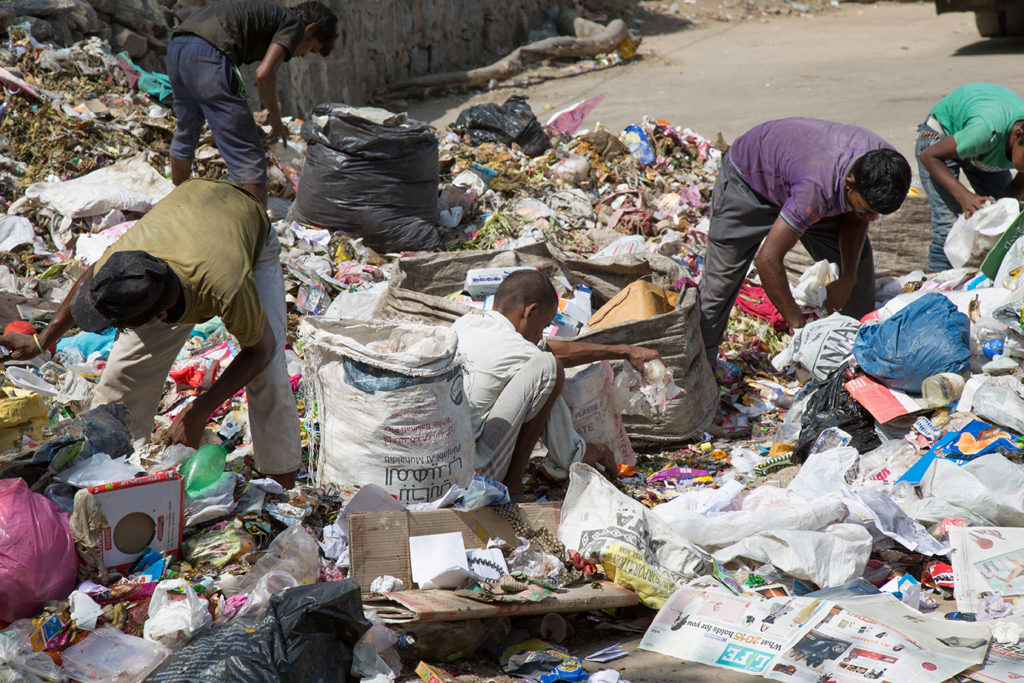We have been producing all kinds of plastics for various purposes for around 100 years. We have around 150 types of plastics in use.
Also, the pyrolysis process is around 100 years old and mainly for the production of charcoal. If you now put plastics in these furnace reactors instead of wood, you do not get charcoal from wood but oil from plastics (search on YouTube under ‘plastic to oil’ and you will see how it works). As far as the production of plastics is concerned, in all those 100 years no solution has been found for plastic waste. The only option is storage, incineration or recycling. By storage, I mean all possible forms of storage (so also in the oceans). By incineration, we mean that plastics are needed as fuel in the waste incinerators (often owned by governments). By recycling, I mean processing each type of plastic (after separation) into a new product. A good example is the recycling of PET bottles into fleece. By levying a deposit, PET is separated from the rest. Most other plastics are contaminated with food waste, for example, which makes them unsuitable for recycling. In addition, one effect of recycling plastics is that each recycling round shortens the carbon chain of that species. Eventually, this is either stored or incinerated. The current situation is therefore very harmful to the environment. This has to stop and it is now possible to do so via the Plastic2Oil process.
“Give youth their future”, is our motto and our motivation.
Now we are of the opinion that cleaning up 100 years of plastic production should not end up in shareholder profits, but with the so-called ‘Forgotten People’ in the world. Let them collect and hand in the plastics, and they will have money immediately, but more importantly: hope! The fact that a lot of plastics have ended up in the environment (both on land and in the seas) means a long-term income for them. Also, the profit made on the sale of the oil goes back to mainly the young people among this forgotten group of people (worldwide, very many millions of people) . Their development into independent professionals is our objective. It is no longer about the global shareholders’ interest but about the forgotten people of the world.
Of course, our financial supporters will get a good, stable return on their invested capital, and the remaining profits from Plastic2Oil go primarily to our target group: the forgotten people with a focus on the young people (the new generation).
Mission
We all want the earth to stay liveable.

Objectives
- Worldwide, we want to start Plastic2Oil factories in places where there is a lot of waste plastic and where there are also a lot of forgotten people.
- We will start our first Plastic2Oil project in Accra, the capital of Ghana. Mr Isaac Plange, who is Ghanaian by origin and now lives and works in the Netherlands, is the project manager of Plastic2Oil project in Ghana.
- Cees Buys is the initiator and responsible for this special project.
- We have to find and set up a structure with which we can generate maximum income and with which we create an exploitation model with which we give the financiers a reasonable return on their invested money, we can continue to pay the exploitation costs and we can spend the remaining profits, responsibly, on our primary mission, being
- To give forgotten people a dignified existence in which they are financially independent.
- Cleaning up the waste plastics, with the resulting oil profits making point a. possible.
All our actions are aimed at realising these objectives and mission.


